Knowing how to get rid of confidential waste is critical for any modern business. Despite handling sensitive data on a daily basis, many companies do not understand the safest and greenest approaches to confidential waste disposal.
A comprehensive company policy on how to dispose of confidential documents can protect you against a range of risks, including blackmail, fraud, hefty fines, identity theft, legal prosecutions, and unauthorised copying or distribution of your intellectual property.
The core of this is confidential paper waste disposal. Your checklist for how to get rid of confidential papers should be common knowledge across your workforce. Private documents should be stored out of sight and should be subject to a confidential shredding process before final disposal.
Large amounts of paper waste in general can be a real headache for business owners. We've assembled this guide so you can easily recognise confidential waste and discover the correct process for disposing of confidential documents.
What is classed as confidential waste?
Before discussing confidential waste disposal methods to ensure sensitive information doesn't end up in the wrong hands, we need to clear up what constitutes confidential waste.
Confidential waste is any physical document or device containing personal data (name, address, phone number, financial records, etc.) that can be used to identify individuals. Other examples of confidential documentation include:
-
Business cards
-
Criminal records
-
Medical records
-
Payslips
-
Research data
This data could relate to customers, employees, or suppliers, and doesn't need to be an official document. Even scribbling a name and number down on the back of an envelope must be handled and managed correctly to prevent a security breach.
Confidential waste regulations
At some point, organisations have to eliminate confidential waste, so there is no hiding place. Businesses can receive heavy fines for violating the Data Protection Act (DPA). For example, the Scottish Borders Council was hit with a £250,000 fine in 2012 for dumping employee pension records into the public recycling bins at a local supermarket.
If you have the correct processes in place to dispose of the waste yourself, you must have a written contract with a specialist confidential waste disposal service. They'll need to guarantee all aspects of the collection and destruction are carried out in a secure and compliant manner before issuing you with a certificate of destruction showing the weight and details of the collection. You should keep this certificate on file for six years.
How to get rid of confidential waste correctly
Businesses must abide by the laws laid out in the General Data Protection Regulation (GDPR), which makes them responsible for safeguarding people's personal information. Organisations cannot keep personal information indefinitely, and the type of data and its relevance will determine how long it can be retained.
Because of this, knowing how to dispose of confidential waste when you need to is a must. This can include having confidential waste bins throughout your premises for secure document disposal, combined with confidential shredding so that documents cannot be read at a later date, once they leave your premises.
How to set up a confidential waste disposal policy
Confidential waste can quickly accumulate in workplaces, taking up valuable shelf space and filling cupboards. By putting in place a comprehensive confidential paper waste disposal policy, you reduce the risk of this sensitive information finding its way off-site without being destroyed.
Make sure your employees are properly trained in how to dispose of confidential documents (and other relevant waste materials) and that it is routine for them to follow your company policy.
Consider enlisting confidential paper shredding services or purchasing an in-house shredder to free up space and effectively shred documents for added peace of mind. Cross-cut shredders are particularly effective, as they make it practically impossible to piece the page together again or read any of the print.
How to store confidential waste documents in cabinets and bins
Work out how much confidential waste your business handles and invest in one or more lockable confidential waste wheelie bins to ensure sensitive documents don't end up in the wrong hands. Confidential waste bins have a special aperture for secure disposal, which makes it more difficult to take documents back out of the bin.
Set up a safe and secure storage area for your bins so your documents are resilient to potential theft, locked away until collection. This also gives your employees a designated space to dispose of confidential waste, meaning it won't inadvertently end up elsewhere on the premises where it could be vulnerable to interception.
What documents you should shred
Generally speaking, you should shred any documents that contain protected information, such as customers' names, addresses, and especially any account details. You should also shred old contracts (ONLY if you no longer need them for legal reasons), CVs and cover letters from past candidates, and any sensitive internal documents.
Many long-running businesses have stacks of old customer files. If you're in the process of digitising those, or are simply getting rid of files you no longer need to retain, it's especially important that you know how to dispose of confidential waste in large quantities.
What non-paper documents you should shred
Not all confidential waste is in the form of recyclable paper. Some confidential documents may be laminated or printed on projector transparency film. Older documents may even be stored on microfilm.
You should have arrangements in place for all of these, and any non-document waste such as expired company credit cards, ID security badges and access control swipe cards, plus old company uniforms that could be used to impersonate your workforce.
Some electronics, such as hard drives and USB pen drives, may also constitute confidential waste, depending on the data stored on them. Physically shredding electronic devices is an extreme measure (although it is sometimes taken), but you can 'virtually shred' the data by ensuring it is fully erased and cannot be restored using 'disk recovery' software.
Can you burn confidential waste?
If you were asked to list how to get rid of confidential papers in the most effective ways, you might reasonably put burning at the top of that list.
Some businesses believe that incinerating their confidential waste is the most effective way to eliminate it. However, we would always advise against this method.
Not only is it dangerous (fires can spread quickly, especially when burning paper) and environmentally unfriendly, there's no guarantee this process will fully destroy the documents.
The only way to know if your documents have been destroyed is by burning them individually and completely, however this isn't very time efficient.
How to get rid of confidential waste at home
Knowing how to dispose of confidential documents at home is a challenge in its own right, and is a dilemma faced by many freelancers, self-employed individuals, home-based businesses, and the growing number of hybrid and remote workers since the pandemic.
People who run home businesses often rely on one-off, contract-free shredding services to safely remove and destroy confidential waste. Moving house or disposing of a deceased relative's paperwork can also result in homeowners sifting through mountains of confidential waste.
It's a good idea to buy a cross-cut paper shredder for your home, as you'll inevitably have personal files such as bank statements and mortgage documents to dispose of at some stage.
An appropriately sized confidential waste bin is also a sensible investment if you're dealing with large amounts of personal data. However, as a general rule, homeowners will only require domestic paper shredding services as an occasional one-off.
This typically involves the property owner being sent confidential waste sacks, which the shredding company then collects and professionally destroys.
Where can I take confidential waste?
Some shredding services allow you to transport your confidential waste to the facility. You can see your files being shredded, before they are taken to a recycling centre, boosting your organisation's green credentials. Depending on your vehicle and level of security, this process may mean there is a period where the documents aren't as secure as they could be.
The most common practice for disposing of confidential documents is using a confidential waste collection service to collect your paperwork and transport it to a secure destination. Many business owners opt for the added reassurance of mobile shredding, where they or an appropriate person from the company can oversee their documents being shredded prior to being in transit.
What happens to confidential waste?
If you don't use mobile shredding, your confidential waste will be shredded off-site by a licensed waste contractor at a secure premises or shredding depot. No confidential waste will leave the premises unshredded, to ensure it is not compromised en route.
Waste is then either recycled at a paper mill or reused. Any items that can't be recycled or reused will be sent to a waste-to-energy facility, where they are converted into energy to power homes and businesses. Most shredding companies will employ these eco-friendly methods, so that zero waste ends up in landfills.
Get secure bins with Wheelie Bin Solutions
As we've discussed, it's paramount that businesses have an effective, confidential waste management system to comply with regulations to process and destroy sensitive information correctly.
Follow these top tips so your business can dispose of confidential waste confidently:
-
The majority of data in the modern day is processed electronically. Look at ways you can limit the amount of printing to enhance your data security and limit your amount of paper waste.
-
Think about the security of your premises, how you can control access, and the area where your confidential waste is stored. This could include destroying branded corporate clothing and uniforms when they are no longer needed to prevent identity theft and stop unauthorised persons from entering your building.
-
Write out a confidential waste policy so all your staff knows their responsibilities for disposing of confidential waste in line with DPA/GDPR standards.
-
Fit a wheelie bin lock to your existing bins so your confidential waste is securely stored, reducing the risk of theft and bin raiding.
If you require secure storage for your confidential waste, contact Wheelie Bin Solutions to ensure your personal and sensitive business data doesn't end up in the wrong hands.








Craig Pryce
With over 17 years of experience in the waste and recycling industry, Craig is passionate about making recycling easier and reducing the negative impact of litter. He has been the managing director of Wheelie Bin Solutions (WBS) since January 2016, and prides the company on his expert knowledge, top-quality products, and customer service. His proudest moment was when WBS supported the 2012 Olympic Games, working in partnership with Contenur UK to supply over 9000 bin containers to all Olympic venues. Craig is always keen to share his knowledge, so whether you need advice about the benefits of a wheelie bin lock, or ideas for alternative uses for your wheelie bin, Craig will ensure your recycling and waste disposal habits are gold medal worthy.